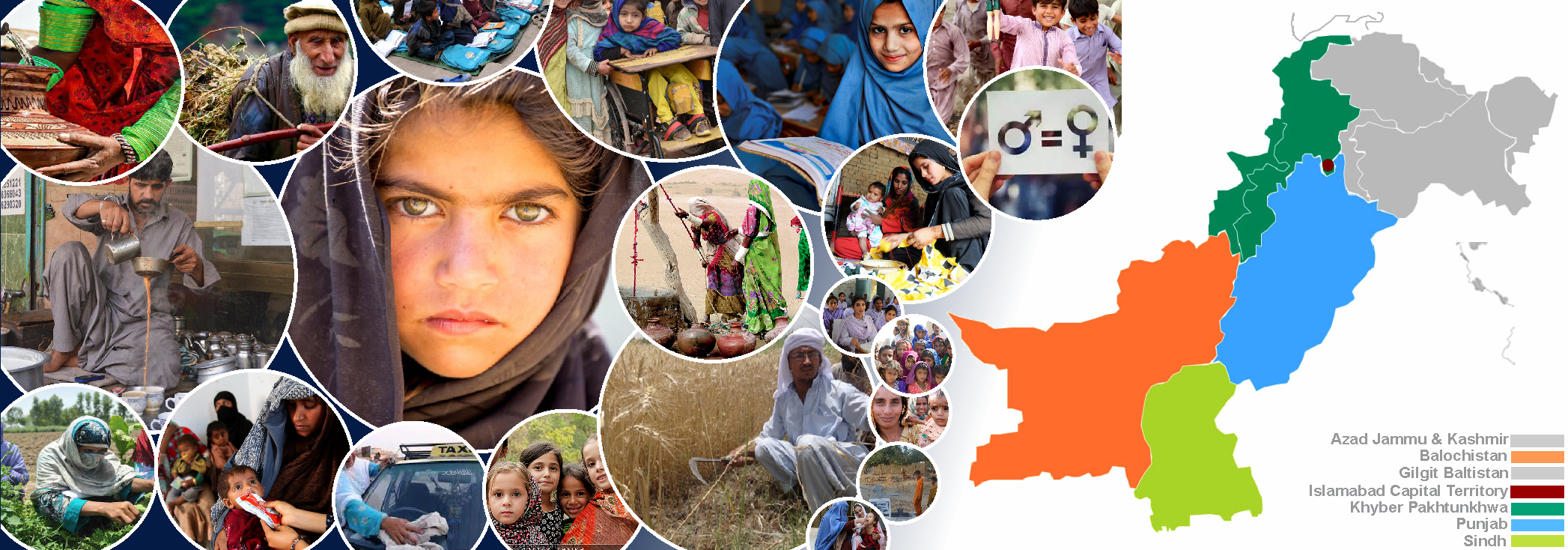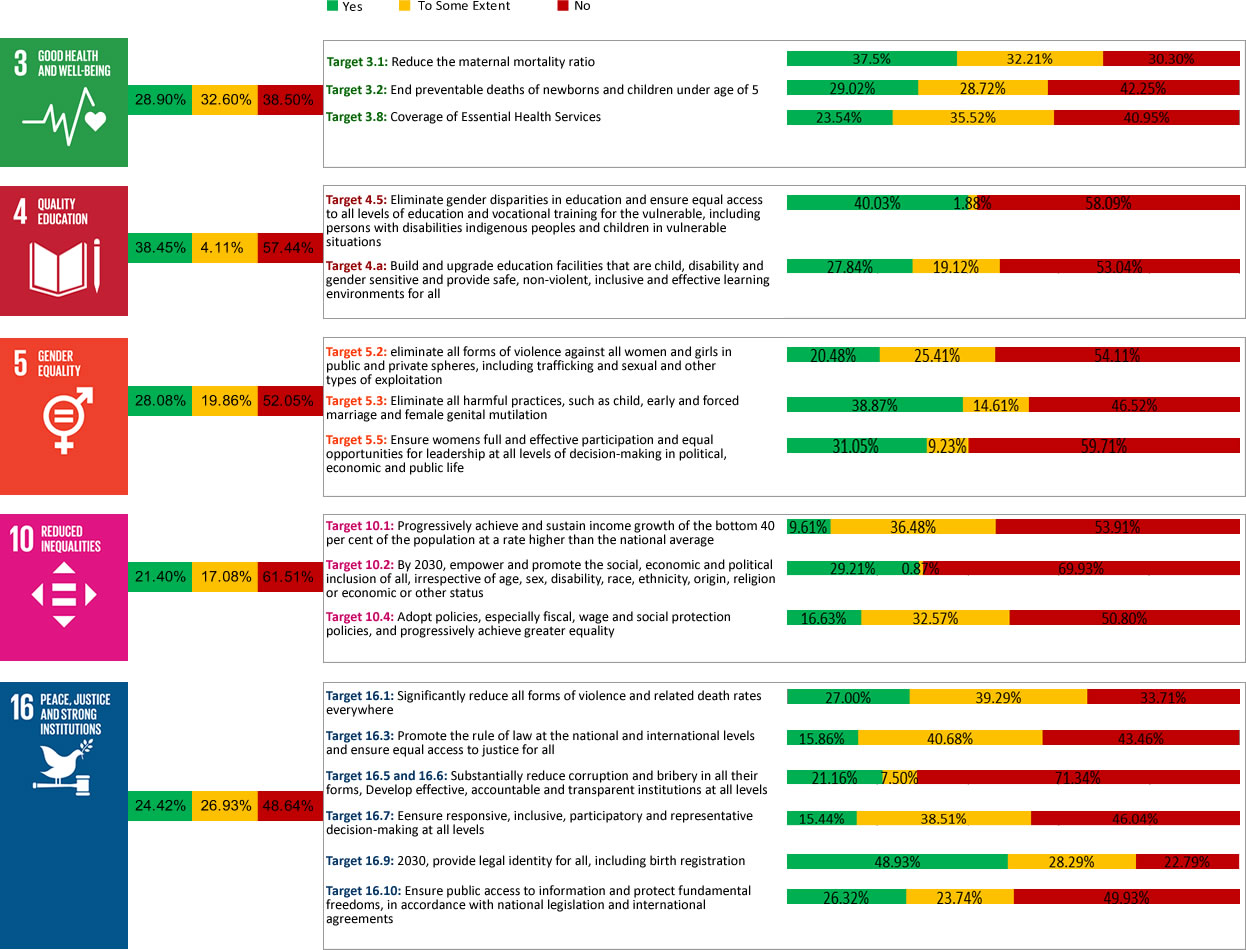The SDGs Citizens’ Scorecard is a beneficiary centric tool to track and measure the progress and challenges in achieving Sustainable Development Goals (SDGs). Government and CSOs in Pakistan are already well aware regarding the importance of Citizens’ Scorecard and its impacts on policy reforms, strategy formulation, identifying priorities & missing links as well as opportunities, tracking progress & operational gaps, performance measurements, creating healthy competitions etc. The Citizens’ Scorecard also encourages good governance and better management as well as accountability policies, processes and practices through stories of success and failures. Pakistan Poverty Scorecard is being used for the identification of beneficiaries under Benazir Income Support Program (BISP) and Ehsaas Emergency Cash Grants. However, no Scorecard for other socio-economic and political perceptions of masses has ever been introduced. This is the first ever Citizens’ Scorecard on SDGs launched By AwazCDS/Pakistan Development Alliance and its partners across the country. Initially we have selected five goals i.e. health (SDG3), education (SDG4), gender equality (SDG5), reduce inequality (SDG10) and peace Justice & strong institutions (SDG16). All together 18 targets are selected considering aforementioned 5 goals. Most of the targets are selected considering the government’s priority targets and indicators as mentioned in their national and provincial priority frameworks. A survey tool comprised of 128 questions, was developed a group of national experts comprised of representatives from National Human Rights Institutions, Parliamentary Task Forces, SDGs Units as well as INGOs and CSOs. The scope of the Scorecard was defined around different dimensions of related targets and indicators considering the factors regarding accessibility, affordability, quantity and quality of services. Further details are available in the process and methodology section.
SDGs Citizens Scorecard – Pakistan as of March 2020
As mentioned in the methodology part (chapter 1) only five top priority goals (SDGs 3, 4, 5, 10 and 16) and some of their related targets were selected for the social audit through citizens’ scorecard. One of the other reasons for selecting the aforementioned goals were that they are primarily conceived and developed to address social inequalities (SDG3 & 4), gender inequalities (SDG5), economic inequalities (SDG10) and political inequalities (SDG16). The score is recorded on the basis of selected questions available in the below grid. The questions were developed after a thoughtful process as explicitly explained in the citizens’ perception survey methodology. The results are shared through traffic light as green goes for positive perception, yellow goes for mix perception and red goes for negative perception. As mentioned earlier in chapter 1, the citizens’ scorecard was executed in 14 district selecting 2 each from Azad Jammu & Kashmir, Balochistan, Gilgit Baltistan, Khyber Pakhtunkhwa, Punjab, Sindh and Twin cities. Mixed group of 100 people from each of the selected districts were requested to answer the scorecard questionnaire in a face to face meeting trained professionals. Only national level results are shared below however in order to have more details about the results at regional, provincial and district level please follow the link sdgscitizenscorecard.pda.net.pk
Overall 38.45% citizens’ were satisfied with a progress on education (SDG4) and 28.90% citizens’ were satisfied with a progress on health (SDG3). This shows that a large majority of citizens’ i.e. 63% to 70% demand more attentions of governments and other related stakeholders for reduction in social inequalities in the country.
Only 28.08% citizens’ were satisfied with the progress on gender equality (SDG5) however again more than 70% citizens’ expressed their dissatisfaction on rising gender inequalities in the country.
Only 21.40% citizens’ expressed their satisfaction on reduced inequalities (SDG10) whereas more than 60% citizens’ are highly dissatisfied and more than 17% citizens’ were somehow dissatisfied on the actions taken the governments and related authorities in reducing economic inequalities.
Only 24.42% citizens’ were satisfied with the progress on creating peace, justice and strong institutions however a large majority of over 75% people were dissatisfied with the progress towards peaceful & just society, strong institutions and addressing political inequalities.
Since the results of the scorecard are based upon the perceptions of the citizens’ regarding the progress on selected SDGs and their respective targets, therefore no further explanations or interfacing of analysis are being provided By the author with this understating that readers/analysts would have their own analysis against each of the scorecard results. A separate chapter of socio-economic and political analysis might have been added in the citizens’ dossier against each of the below SDGs and their respective questions.
  |
  |
  |
  |
  |






